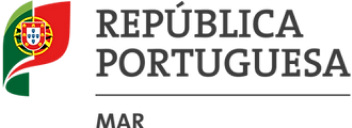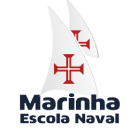A fundamental body of knowledge in Industrial Engineering, Logistics, and Management for the new and existing professionals of the maritime-port industry
The Master’s Degree in Maritime Logistics (MML) is an innovative international programme offered jointly by NOVA School of Science and Technology (NOVA SST) and the Portuguese Naval Academy. This master’s programme comprises multiple aspects of maritime logistics, operations and their supporting technology, trade law, port administration, maritime business analysis, as well as leadership and managerial skills. Moreover, the students have the opportunity to complete a three-month internship or implement a final project in one of the leading companies of the maritime logistics cluster. Academic institutions and firms from Europe are taking part in the development of this master’s programme and will collaborate in the delivery of the curriculum.
This master’s programme represents a chance to become the professional in maritime logistics the market is looking for and stand out among other experts. The programme fosters optimal technical and managerial preparation, oriented towards current and future challenges faced by the industry, such as digitalization and multicultural interconnectedness, combined with valuable on-field experience.

This master’s programme assembles a fundamental body of knowledge in Industrial Engineering, Logistics, and Management, which allows new and existing professionals of the maritime-port industry to develop the relevant research, innovation, technical, digital and soft skills within the framework of sector related needs, including critical reasoning and a proactive predisposition.
The demand for blue skills is expected to increase in the next years, most significantly in areas like maritime transport and shipping services, among others. This demand is also boosted by the number of new retirees not being matched by new entrants.
This generates a knowledge and experience gap that has to be filled by transferring competences to new professionals before they disappear. Especially, young workers without prior specific education will face serious problems joining the maritime work environment. That is why a consistent training on technical skills is of paramount importance, as well as good quality coaching on transversal soft skills, such as multicultural negotiation, leadership, teamwork and problem-solving abilities. Also, their digital skills must be developed, due to the constant need and trend of the digitalization of the sector, with particular emphasis on the maritime single window technology. Finally, due to the new legal requirements and the policy commitments of the organizations regarding sustainability, green skills are also recognised as essential.
Port and maritime actors emphasise creativity and innovation, pointing out that employees need to be able to develop a positive attitude to problem solving, seeking new, out-of-the-box solutions rather than relying on traditional thinking and ways of working.
This Master’s Degree Programme in Maritime Logistics is a fundamental outcome of the MarLEM project (Maritime Logistics Engineering and Management), funded by the European Commission (European Maritime and Fisheries Fund) within the framework of the Blue Economy concept, in which NOVA SST and the Portuguese Naval Academy are the main academic partners. The MarLEM project aims at filling the gaps between higher education offerings in the area of maritime logistics and the labour market needs, i.e., the necessary skills versus the available ones in the sector. MarLEM benefitted from the support of the Atlantic Knowledge Triangle , a network of Industry, Academia and Authorities entities that cooperated to establish a better framework for skills development, continuous improvement, and alignment with identified needs.
More information and APPLICATIONS here
The Master in Maritime Logistics will enable specialists to:
Understand and operationalize the concepts of logistics and value chains supported by maritime transport, in its various components (maritime, port and modes of transport and logistics on land);
Make decisions in face of complexity at various levels (strategic, managerial / tactical and operational), supported by a systemic vision and integration of the various aspects of maritime logistics and associated risks;
Take initiative, research, propose innovative solutions, organize teams, lead them and work with them, in different contexts of maritime logistics.

Candidates must have at least 5 years of professional activity, preferably, but not exclusively, in Logistics Operations and Management, such as ship owners/charterers, ports, port terminals, transportation, logistics centres, agents or brokers, complying with one of the four conditions:
The programme is fully held in English. Mastering of the English language is mandatory.
Bachelor (first cycle) degree or legal equivalent in the areas of Exact Sciences, Technology, Engineering, Economics, Business Management, Naval Administration or Geography.
Foreign higher academic degree, following a first cycle of studies (BA/BS) in those areas organized according to the Bologna Process, by a State adherent to this Process.
Other academic degree in the fields above that is recognized as meeting the goals of a first cycle degree.
Professional, scholar or scientific curriculum that is recognized as attesting the capacity to carry out this cycle of studies.
The master’s programme of 60 ECTS (European Credit Transfer and Accumulation System) has one year of duration, divided in two terms.
The first term comprises 9 courses encompassing logistics, operations and their supporting technology, trade law, port administration, maritime business analysis, as well as leadership and managerial skills. The courses are delivered as intensive modules by NOVA SST and the Portuguese Naval Academy.
The second term offers the option of either enrol in a professional internship or the assignment of an applied project, and is to be carried out at a company belonging to the maritime industry or research centre.


Teaching and evaluation methodologies encourage critical analysis, the sharing of knowledge and professional experience, and experimentation and research, to develop technical skills as well as soft skills, which allow the professionals to increase their capacity to respond to change and innovation.
The delivery of the curricula is to be enriched with interventions from industry experts and professors from foreign universities, namely lectures and other short interventions in seminar format.
Technical visits to facilities, such as port terminals, widens the practical experience.
The project or professional internship deepens competencies by applying the knowledge built in the curricular stage to run a real-life maritime logistics project or to perform a professional activity to achieve previously set targets.
The module format of the courses enables intensive approaches and the development of a critical and proactive attitude in the evaluation of problems and in the search for innovative solutions, namely through:
The curriculum sequence is initiated by a comprehensive course that allows a global and integrative view of maritime logistics, and then develops over each of its fundamental areas. At total, 9 courses (30 ECTS) are offered. Each 3 ECTS module is due to require one week of face-to-face contact. Classes are held at the NOVA SST campus and the Naval Academy facilities. In the second term, students may then choose either to perform a real-world maritime and port logistics project or to engage in a professional internship (30 ECTS).
The Master in Maritime Logistics programme is designed to achieve its comprehensive goal by encouraging the development of both hard and soft skills.
・Integrated logistics (operations, transport and distribution)
・Port and shipping operations
・Value chain management (design, plan, assessment, analysis and performance evaluation)
・Data analysis expertise
・Information and Communication Technology (ICT)
・Cybersecurity
・Systems integration
・Sustainability awareness
・Economy of resources and circular economy
・Increased efficiency
・Reduction in time and waste
・Clear-cut values and educated character
・Interpersonal communication
・Leadership and teamwork
・Proactivity and accountability
・Creativity and innovation



To contact the project managers, please complete the following form,we will try to be brief in the reply.
This Master’s Degree Programme in Maritime Logistics is a fundamental outcome of the MarLEM project (Maritime Logistics Engineering and Management), funded by the European Commission
The Mobility for Maritime Logistics – M4ML project provides financial support to the bilateral exchange of students, faculty and researchers between Portugal and Norway
Understand maritime logistics and identify its business, operational, technological and regulatory components;
Have an integrated view of the maritime logistics chain, its sustainability and relationships with its environment, in a sea literacy perspective;
Identify and structure maritime logistics problems and be proactive in the search for solutions;
Organize information and communicate orally and in writing;
Work individually and in teams, defining priorities and managing the time to meet deadlines;
Be motivated to increase the acquired knowledge and skills.
Module format, 10 consecutive working days (8 days x 5h30 + 2 days x 6 h). Exposition of theoretical content, study and presentation in class of specific literature and cases, case solving (problem structuring and solving of simple cases).
Course evaluation: two individual case solving assignments plus one project.
Prof. Helena Maria Lourenço Carvalho Remígio;
Prof. Aneesh Zutshi;
External specialists (TBN).
NOVA SST Campus
Understand the importance of Operations Management for organizations;
Define, analyze, measure, improve and control industrial and services operations;
Design of decision trees;
Develop linear programming models;
Describe a queuing system;
Apply queue analysis models;
Know and be able to use simulation tools;
Explain Six sigma;
Apply Lean management tools to identify operations"waste";
Identify the objectives of Sustainability;
Categorize the principles of Circular Economy;
Identify the ISO standards applicable to the context of maritime operations;
Develop oral and written communication skills;
Develop problem solving skills;
Develop individual and group working habits together with time management skills;
Organize group work.
Module format, 5 consecutive working days (4 days x 5h30 + 1 day x 6 h). The teaching method consists of multiple methodologies such as: exposition of theoretical contents, exercise solving, discussion of case studies, and development of a synthesis project. Laboratory project to apply the acquired knowledge.
Course evaluation: one project, plus two written tests.
Prof. Helena Maria Lourenço Carvalho Remígio;
Prof. Radu Godina;
External specialists (TBN).
NOVA SST Campus
Understand the technological multiplicity of the maritime logistics;
Identify the different technologies and their functional relationships with the logistic operations;
Identify the opportunities brought by the new technological tendencies as well as the risks of ignoring them;
Structure and functionally specify the technologies required to the operations in the different domains of the maritime logistics chain;
Interact and negotiate with the technologies’ specialists;
Be motivated to increase the acquired knowledge and skills.
Module format, 5 consecutive working days (4 days x 5h30 + 1 day x 6 h). Theoretical-practical classes (TP) are directed so that students, through their active participation, understand each of the topics listed in the intended learning outcomes.
Course Evaluation: one written test, plus one monography.
Prof. António Carlos Bárbara Grilo;
Prof. José António Barata de Oliveira;
External specialists (TBN).
NOVA SST Campus
Understand the nature of the diverse types of businesses within the maritime logistics chain, and of its revenue and cost components;
Evaluate revenues, costs and proceedings of the maritime logistics activities;
Identify investment/divestment needs and analyze and assess investment projects;
Apply risk analysis tools to the business and to investment projects;
Structure and communicate information for business assessment in general and investment projects in particular;
Work individually and in team, defining priorities and managing the time to meet deadlines;
Be motivated to increase the acquired knowledge and skills.
Module format, 5 consecutive working days (4 days x 5h30 + 1 day x 6 h). Exposition of theoretical content and tutored resolution of problems and cases. Study and solving of costing and evaluation of maritime and land operations e investment projects. Course evaluation: one individual assignment, one team assignment, plus one written test.
Prof.Pedro Emanuel Botelho Espadinha da Cruz;
Prof. Aneesh Zutshi;
External specialists (TBN).
NOVA SST Campus
Have an integrated view of the maritime-port logistics operation supply chain;
Understand the value creation process;
Have a holistic and integrated view of the maritime-port logistical activity, as a complex system;
Understand concepts such as risk, uncertainty and sustainability and their relevance to the architecture of the logistics system;
Know the main phases of the systems life cycle, from conception, evaluation, construction, operation and elimination;
Know the functional elements of the Integrated Logistic Support applied to the context of maritime-port operations;
Have a perspective of what will be the main challenges and trends for logistical activity associated with maritime-port operations;
Develop soft skills to carry out a critical analysis of the real problems faced on the maritime-port logistics operation face and to present possible solutions.
Module format, 5 consecutive working days (4 days x 5h30 + 1 day x 6 h). A participatory methodology covering the theoretical framework and the practical application is applied. The sessions are of a theoretical-practical nature. They include the exposition of concepts and methodologies and the presentation of real or simulated examples of application. These examples are discussed and interpreted in the classroom context. It is also proposed to students the resolution of a set of problems, autonomously, in an extra-classroom context.
Evaluation: one written test, plus and/or one or more practical assignments.
Prof ADM Mário José Simões Marques;
Prof CFR Armindo Dias da Silva Frias;
Invited Professor(TBN);
External specialists (TBN).
Naval Academy facilities
Know the Concepts and sources of Maritime Law;
Describe the International Trade and shipping documents;
Explain Cargo Claims and Bills of Lading;
Explain INCOTERMS;
Brokering and Chartering Practice.
Module format, 5 consecutive working days (4 days x 5h30 + 1 day x 6 h). A participatory methodology covering the theoretical framework and the practical application is applied. The sessions are of a theoretical-practical nature, it includes the exposition of concepts and methodologies and the presentation of real or simulated examples of application. These examples are discussed and interpreted in the classroom context. It is also proposed to students the resolution of a set of problems, autonomously, in an extra-classroom context.
Evaluation: one practical test, plus one or more assignments.
Prof Pedro Manuel Buisson Vairinho de Beltrão Loureiro
Naval Academy facilities
Characterize the Maritime Administration and its functions as a global entity;
Identify the components of the shipping industry in the context of logistics applications;
Recognize the functionalities of a sea port, its authorities and services;
Understand the role of a port as a logistics centre;
Distinguish the different types of port terminals and conditions.
Module format, 5 consecutive working days (4 days x 5h30 + 1 day x 6 h). A participatory methodology covering the theoretical framework and the practical application is applied. The sessions are of a theoretical-practical nature. They include the exposition of concepts and methodologies and the presentation of real or simulated examples of application. These examples are discussed and interpreted in the classroom context. It is also proposed to students the resolution of a set of problems, autonomously, in an extra-classroom context.
Evaluation: one practical test, plus one or more assignments.
CMD António José Dionísio Varela
Naval Academy facilities
Have an integrated understanding of organizations as political entities;
Understand the main principles of organizational behaviour and leadership;
Master team leadership skills;
Develop collaboration and communication skills;
Understand creative and innovation frameworks;
Develop Global awareness and civic literacy skills.
Module format, 5 consecutive working days (4 days x 5h30 + 1 day x 6 h). Presentations, readings, case studies.
Evaluation: One case study discussion and report, plus one written test.
Prof Custódio Fernando Lopes
Prof Ivo Emanuel da Rocha Lima Costa dos Santos Soares
Prof Pedro Manuel Geada Borda de Água
Naval Academy facilities
Have a systematic view of negotiation and conflict resolution approaches;
Understanding the difference between simple and complex negotiations;
Understand Negotiations between two parties and involving multiple parties;
Understand the role of power and influence in negotiation, as well as usable tactics;
Understand how different cultures negotiate;
Understand the main fallacies and mind bias in decision making as an individual or as part of a group.
Module format, 5 consecutive working days (4 days x 5h30 + 1 day x 6 h). Presentations, readings, case studies.
Evaluation: One case study discussion and report, plus one written test.
Prof Pedro Manuel Geada Borda de Água
Invited Professor (TBN).
Naval Academy facilities
This course in entirely dedicated to the preparation, execution and reporting of a work project in maritime logistics, applying the knowledge acquired in the previous term in an innovative to a real life situation in this domain.
Develop a work project applying the knowledge in Maritime Logistics to a real life case, preferably related to the professional activities of the student, who will learn how to run a real life maritime logistics project and to present the obtained results.
Preparation and execution of a project, with the support of the university and the industry’s entity supervisors of the student.
Prof Helena Maria Lourenço Carvalho Remígio
Company/Organization/Research Center
This course consists of a professional traineeship at an organization of the maritime logistics industry, where the knowledge acquired in the previous term will be applied in an innovative way.
Develop professional work in a real-life environment to deepen skills in maritime logistics, learn to structure targets, perform a professional activity to achieve them and present the obtained results.
Targets definition, professional work to accomplish them (with periodic records) and the writing of the final report, with the support of the supervisors of the student from the university and the industry’s organization.
Prof Helena Maria Lourenço Carvalho Remígio
Company/Organization